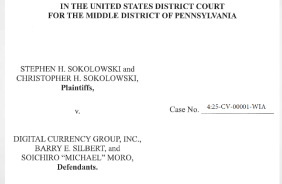Posted on Linked In by
The First AI-Guided Federal Lawsuit: A Pivotal Moment or a Cautionary Tale?
This week on Reddit, Inc. Pro Se Plaintiffs announced they filed the case Sokolowski et al v. Digital Currency Group, Inc. et al, reportedly the first federally filed lawsuit guided extensively by AI tools, including OpenAI’s o1 pro.
The plaintiffs claim they used AI to draft the complaint, simulate potential defenses, and refine their legal strategy. I’ve attached the original complaint.
While this case puts the spotlight on the potential for AI to significantly lower the barriers to justice for many, it also raises critical concerns about the growing use of AI in high-stakes legal matters. So, let’s explore both sides of the story.
Opportunities:
• Access to Justice: The plaintiffs contend that without AI, they would have been unable to pursue their claims due to prohibitive legal fees. AI tools provided them with the ability to represent themselves, offering a potential lifeline for those priced out of the legal system.
• Efficiency and Cost Savings: Advanced models are already being applied by law firms and tech companies to streamline tasks like research, drafting, and even simulations, potentially saving time and allowing litigants to focus on strategy. If applied correctly, why shouldn’t non-legal professionals have access to the same advantages?
Risks and Questions:
• Ethical Concerns: What responsibilities do developers and users of these tools have? Could over-reliance on AI undermine the integrity of the judicial process? What about the Unauthorized Practice of Law risks? What about the copyright issues?
• Impact on Legal Professionals: As AI takes on more tasks traditionally handled by legal professionals, how should the profession adapt? Will it create new opportunities, or will it devalue essential human judgment and expertise?
• Litigant Vulnerability: Self-represented parties using AI might not fully understand the complexities of litigation, leaving them exposed to procedural or strategic pitfalls.
The Bigger Picture
This case highlights the double-edged nature of legal AI. On one hand, it points to a future where technology could expand access to justice for underserved communities. On the other, it underscores the need for careful implementation, oversight, and ethical considerations to avoid potential misuse or harm.
What’s your take? Is this case an exciting example of AI leveling the playing field in the legal system, or does it expose the dangers of relying on tools that are still evolving? What safeguards should we consider for Legal + AI?




